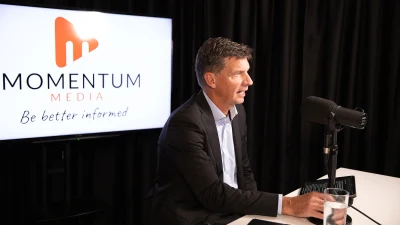The year of practice management
Ask Prescience’s Wayne Wilson and SCAT’s Jim Stackpool what the major trend for financial advisers will be this year and they will tell you more or less the same thing — this is the year of the practice.
Wilson is quite sure that advisers will start to move out of the larger groups and back into small practices — in fact, he says he is already seeing the beginning of a trend.
“Already I am hearing rumbles in the market from advisers who are looking to exit the large institutions and re-establish themselves as small practices,” he says, “that’s what has happened in the past”.
The past he speaks about is the period that follows the introduction of any major financial services industry reform — like the Financial Services Reform Act (FSRA).
“Historically, whenever there have been major legislative changes of that nature, it’s always been financial services institutions, fund managers and life companies that have tried to create an impression that it’s all too hard for financial advisers — ‘You won’t be able to do the administration, you won’t be able to afford it, so you’d better come and join us.’ These are the catalysts that large institutions use to try to create distribution for themselves. They try to create an atmosphere of fear.
“Figures indicate that something like 60 per cent of advisers are working for the top seven financial services institutions, that situation won’t continue,” he says.
In fact, Wilson predicts many advisers will actually find it is not too hard to comply with FSRA.
“I have a belief they are going to find it a lot easier to deal with than they have been led to believe,” he says, and this means many will leave the larger dealer groups to set up their own small financial planning businesses.
“Australia has one of the largest small business ratios in the world,” he says. “The problem with the density of ownership that exists at the moment is that it’s very difficult for large organisations to give advisers the flexibility they like. In order to manage large numbers of advisers, [large organisations] have to have very tight conditions, especially when they have to manage theASICrequirements. That’s opposite to the kinds of things financial planners go into the profession for.”
What isn’t clear, he says, is how long it will take before the trend gains momentum. However, he believes the increasing affordability and accessibility of platforms will help advisers make the shift back to small practice.
“A few years back, there was discussion that there would only be room for a few [platform] players. But desktop technology has improved to such an extent that there are lots of small players and the options are such that advisers don’t have to get locked in. There is, in fact, more room for more players and lots of them are quite small.”
Big platforms, he argues, are not taking over the world — as was once predicted.
“If big platforms were taking control they would have monopolistic or oligopolistic power and the last thing you’d see is the current reduction in management expense ratios (MERs). This means that both consumers and intermediaries are seeing how to use their power.”
While admitting his own biases, Stackpool expects the industry’s focus, which has been fixed for the past few years on compliance, to shift in 2004 towards practice management.
“We have seen the rise and rise of compliance,” he says, “dealer groups were really pushing it. We believe there is going to be a similar push going forward in the area of practice management.”
The effect of this, he says, will be that advisers will need to take a comprehensive approach and know how to make their advice scalable.
“We are not advocating building robotic advisers — a ‘would you like some estate planning with that?’ approach — but we are suggesting that advisers need to build a collaborative team and a comprehensive wealth management model,” he says.
“The problem at the moment is that financial planning businesses rely on one key figure — clients relate to the person, they trust the person, not the culture that sits behind that person.”
And that, says Stackpool, is what needs to change.
“That’s where building a scalable advice model, where the advice is valuable without the person, becomes important,” he says.
“Advisers need to make a paradigm shift to make it possible. They need to take a comprehensive wealth management approach.”
This, he says, involves learning to discuss more than just the issue at hand with clients.
“Our surveys say that advisers generally are only doing one offering — for example, superannuation or investments. They need to talk about all areas of wealth management — investments, cash flow, debt, estate planning, tax, and management accounting. They are all pieces of the same jigsaw and they need to be looked at as a whole. At the moment the jigsaw is widely skewed.”
They also need a model to price the advice appropriately, he says.
Aside from practice management, the other issue the industry will tackle head on this year, according to Wilson, is soft dollar commissions.
“An interesting debate will develop around soft dollar,” he says.
“I think it’s very good that theFinancial Planning Association(FPA) is leading from the front on that, but soft dollars manifest themselves in thousands of different ways in our industry and it will be interesting to see how companies will act and react in order to earn support of intermediaries.
“I hope it will mean that they will focus more on providing education and technology value add. I don’t think it’s a problem for them to run conferences if they are really adding value. There will certainly have to be a significant increase in being able to demonstrate value in what they offer in the way of seminars and conferences, and I think running them out of Acapulco and Barcelona is not on.”
Recommended for you
The Financial Advice Association Australia has released its pre-budget submission, including six key items to help reduce the cost of professional advice and increase its accessibility.
Phil Anderson, general manager for financial advice at the FAAA, believes the CSLR levy could reach $100 million if Dixon Advisory complaints are allowed to continue.
Proposed legislative changes to safe harbour duty could result in advisers having reduced professional indemnity costs, a joint submission by seven major licensees said.
With 66 per cent of newly established advice licensees being sole advisers, what are the risks and legal ramifications to consider when taking the plunge into self-licensing?














